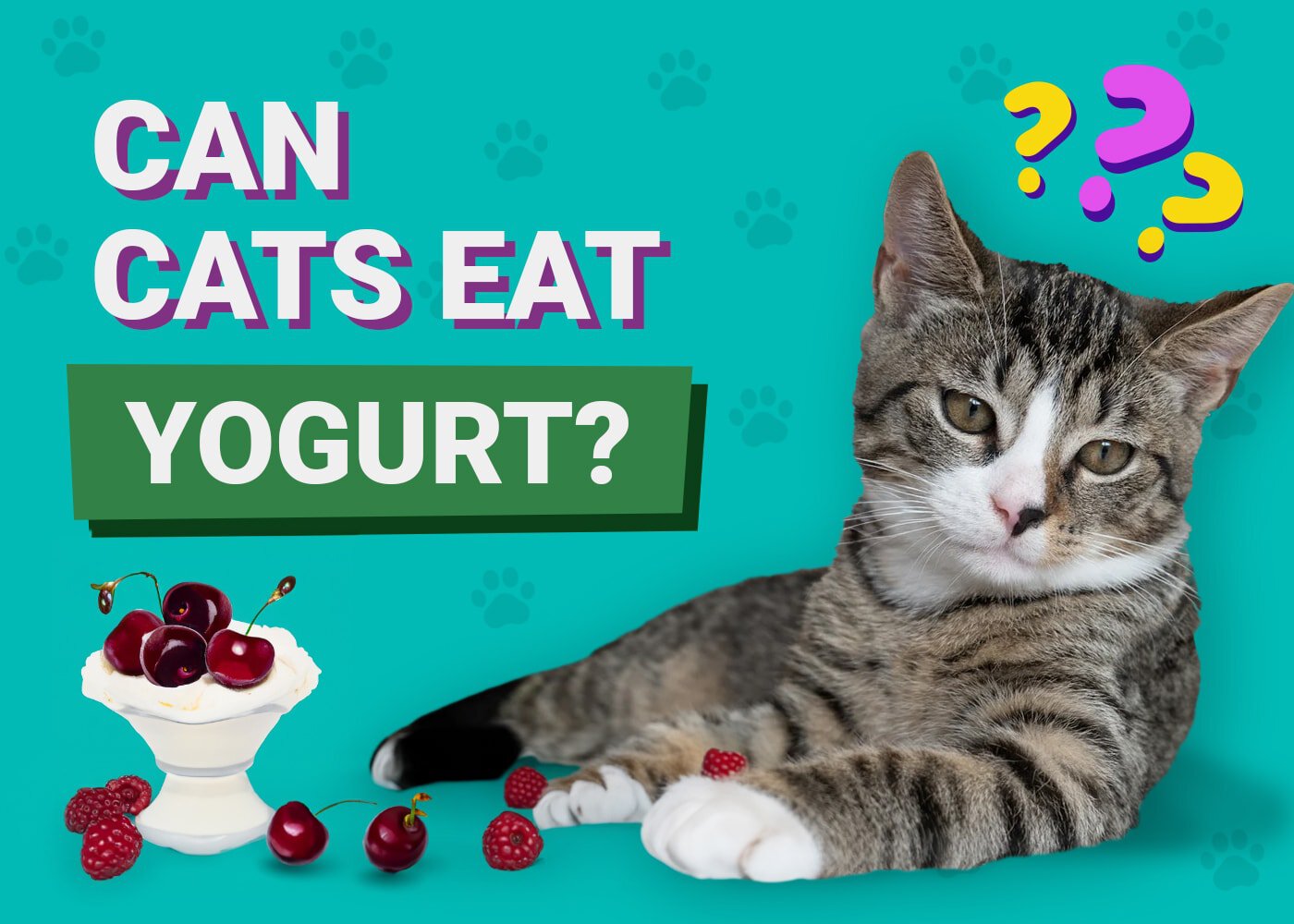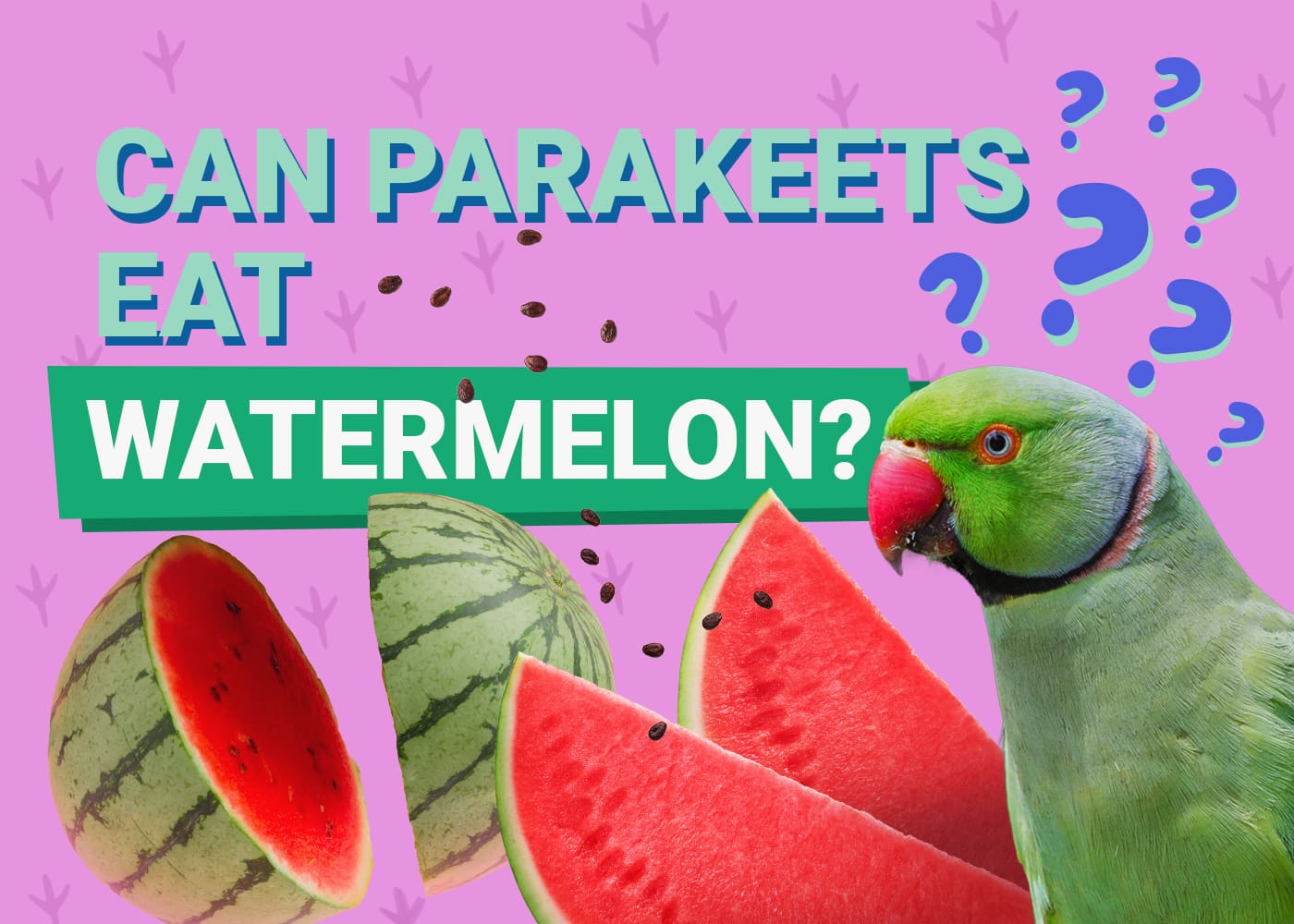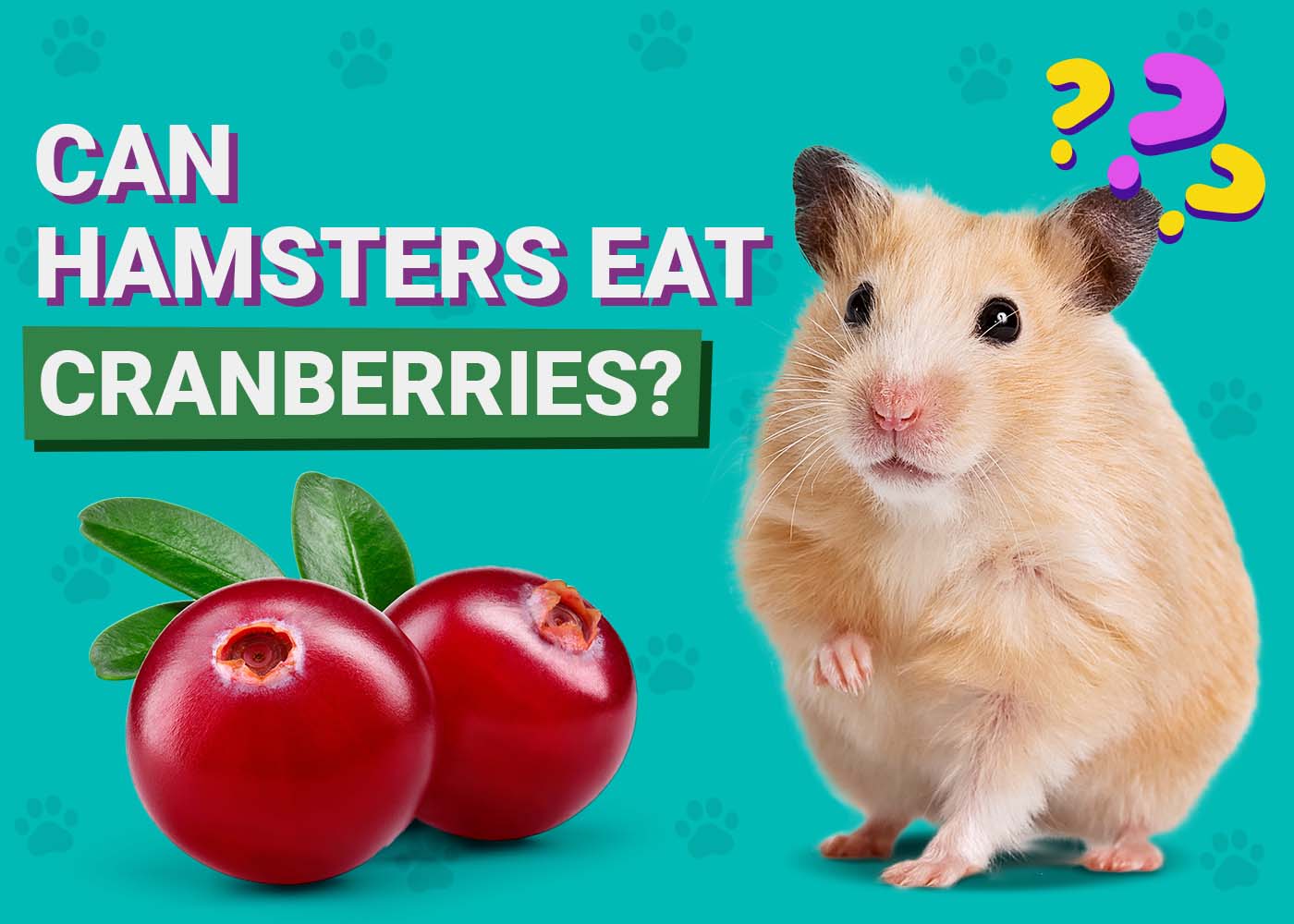VET APPROVED

The information is current and up-to-date in accordance with the latest veterinarian research.
Learn more »Click to Skip Ahead
Yogurt is considered a healthy treat for humans, providing probiotics as well as calcium and a good range of other essential vitamins and minerals. And, while it shouldn’t be fed regularly or in too large a quantity, yogurt can be perfectly safe for cats to eat as an occasional treat. However, you do need to check the ingredients to make sure you don’t give your cat yogurt containing xylitol or other unwanted ingredients. You should also start with a small amount because while the fermentation process involved in making yogurt does destroy most of the lactose, some still exists, so if your cat is one of the many that is lactose intolerant, it can cause gastrointestinal upset.
Read on for more information about feeding yogurt to cats including how much and how often you should feed this ingredient.

Feline Diet
Cats are obligate carnivores, which means that their diet should consist of meat and meat products. Their digestive system has not developed to digest other food types, including dairy. In the wild, cats would eat a diet consisting of small mammals, birds, and other small animals. However, most commercial cat foods do include vegetables and other plant-based ingredients, as well as eggs and some other ingredients not considered part of a strictly carnivorous diet.
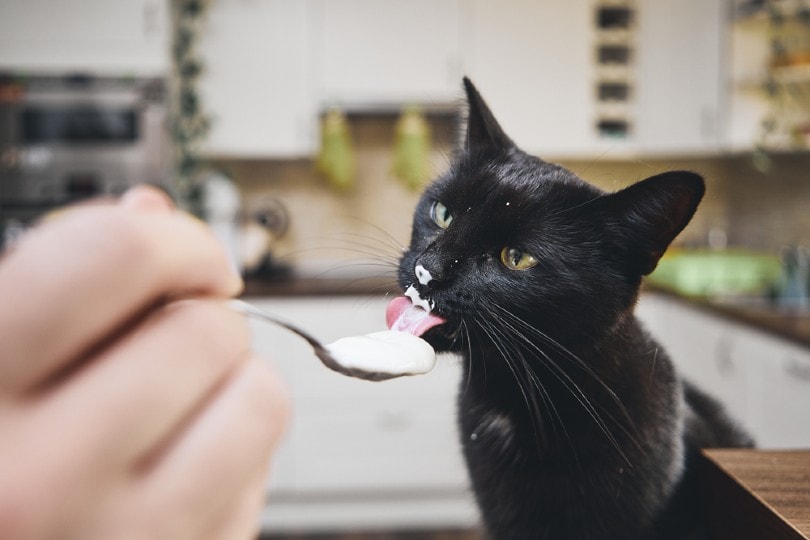
Can Cats Eat Yogurt?
Yogurt is a dairy product, which means that it does contain lactose. However, the fermentation process that yogurt undergoes destroys a lot of the lactose. If a cat can tolerate lactose, it can tolerate yogurt. Even those cats that are intolerant may be able to tolerate a small amount and there shouldn’t be any major cause for concern if your cat has licked a small amount of yogurt off a spoon or from a bowl, for example.
- Protein – Protein is a cat’s primary source of energy. Fat and carbohydrates also act as energy sources, but cats specifically need the amino acids that are found in protein. Unfortunately, some of the amino acids that cats need are not found in yogurt and are specifically found in meat.
- Calcium – Calcium plays a crucial role in the formation and maintenance of bones and teeth. It also plays several other roles, including helping blood to clot efficiently and to support muscle contractions.
- B Vitamins – B vitamins play an important role in energy production, and if a cat is deficient it can become lethargic. These water-soluble vitamins are not stored in the body, either, and are expelled in urine, so cats need a constant supply of B vitamins.
- Potassium and Magnesium – Magnesium helps the body absorb and use other vitamins and minerals and helps aid bone growth. Potassium helps control heart rhythm and other essential bodily functions.
- Probiotics – Probiotics are good bacteria that help promote a healthy gut. They can help with gastrointestinal infections and are especially beneficial if your cat is or has been on certain medications that can cause a reduction in good bacteria and a promotion of bad gut bacteria.
Although these are all essential ingredients in a cat’s diet, if you ensure that your cat is on a complete, balanced diet, there shouldn’t be a deficiency.

The 5 Ingredients to Avoid
Although plain yogurt is safe for cats to eat, and even those with lactose intolerance shouldn’t react too negatively to yogurt, there are ingredients in certain yogurt products that you must avoid. Generally, you should choose an unsweetened, unsalted, and plain yogurt, if you are intentionally giving your cat a yogurt treat. And you should certainly avoid the following ingredients:
1. Xylitol
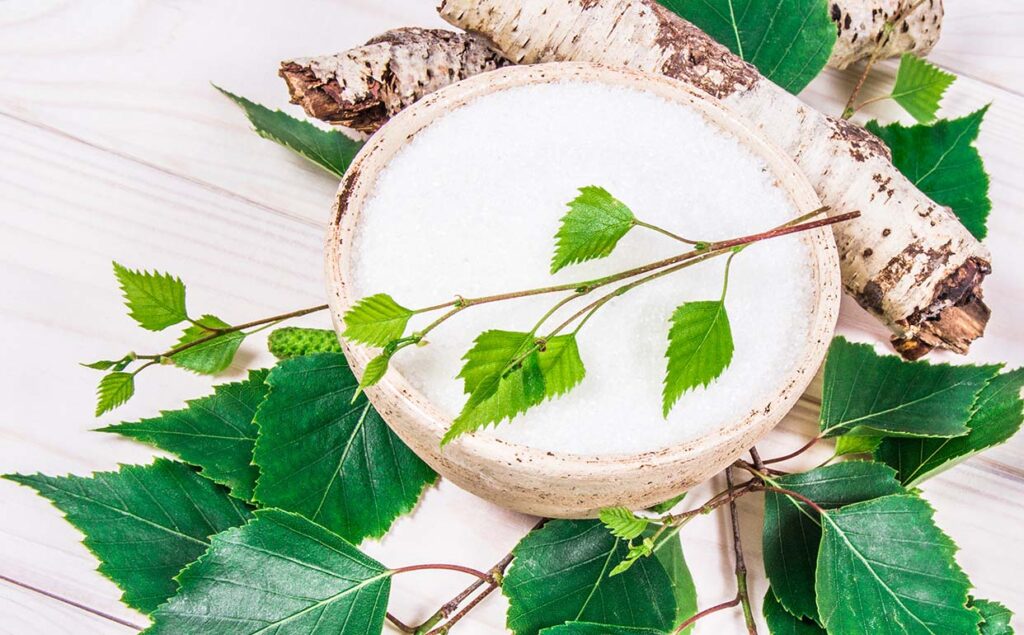
Xylitol is toxic to dogs, and many people assume that the same is true of cats. Research is somewhat lacking in this area and there are fewer reported incidents of xylitol toxicity in cats, but this could be because fewer cats eat it. Dogs are prone to eating anything in front of them, whereas cats tend to be pickier. With that said, the possibility of toxicity does exist and you should avoid giving anything to your cats that contains this artificial sweetener.
2. Grapes and Raisins
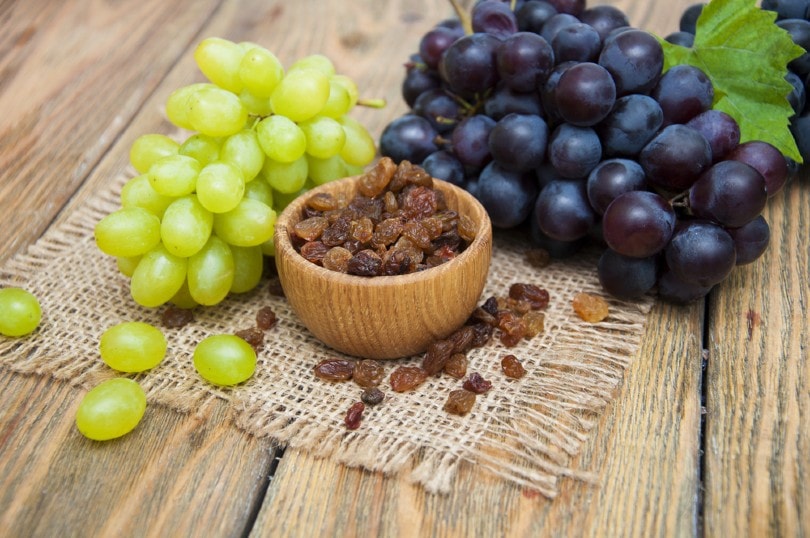
Grapes can lead to kidney damage in cats and dogs. Ultimately, it can lead to kidney failure which is usually fatal, so you should avoid giving this fruit to cats at all. Raisins are dried grapes, and they can have the same effect, so these too should be avoided. While there is less evidence of grape toxicity in cats, this is again probably because cats are less likely to eat them.
3. Chocolate
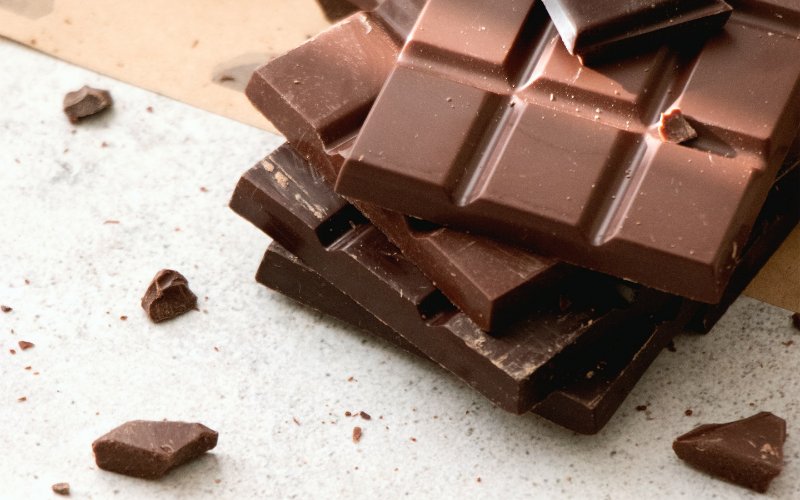
Chocolate contains caffeine, which is considered toxic for cats, and theobromine, which can also prove fatal. You should not feed chocolate to cats as these two stimulants can prove deadly.
4. Citrus
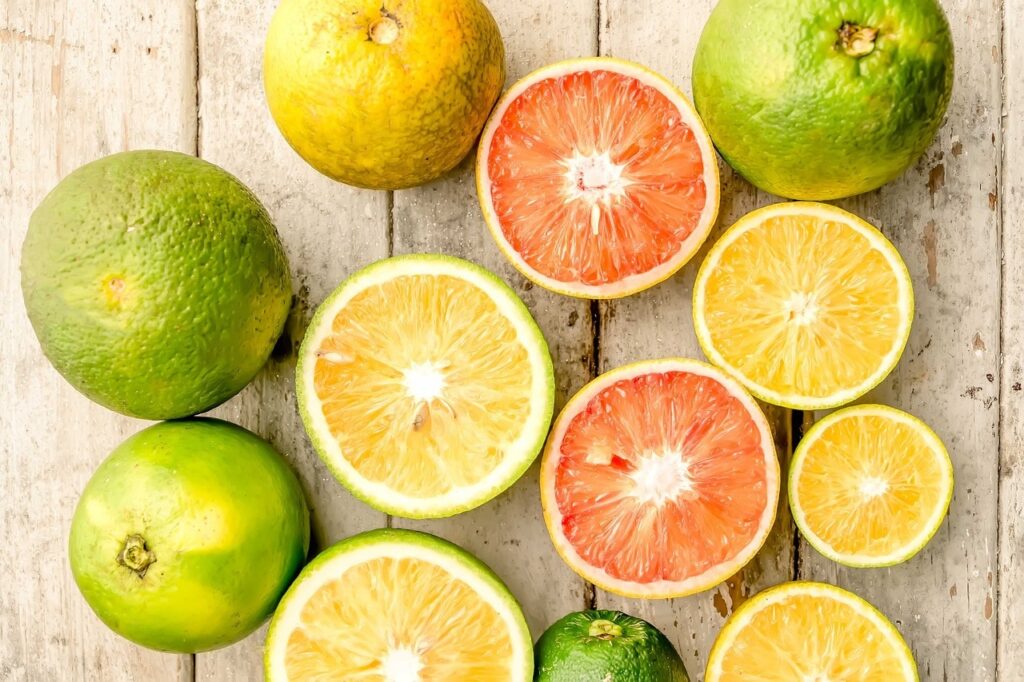
Citrus fruits are bad for cats. They contain citric acid and some essential oils that interfere with a cat’s nervous system. If your cat consumes enough of them, it can have a seriously negative impact on the nervous system that can cause tremors, seizures, and potentially even death.
5. Coconut
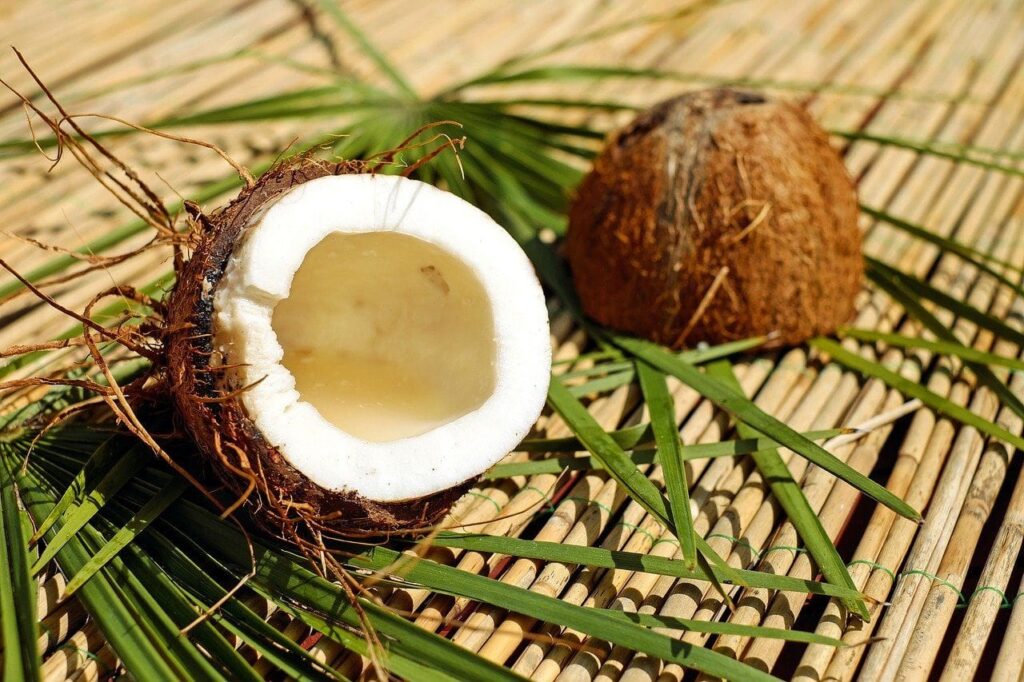
Coconut is not necessarily toxic to cats and if your cat eats a small amount of the flesh, it should be OK. However, too much coconut can cause diarrhea and other gastrointestinal problems, so it is best avoided.

Are Cats Lactose Intolerant?
Some are, but cats are lactose intolerant to varying degrees. This is because they don’t have lactase in their digestive system to break down the sugar in dairy products. Cats that are lactose intolerant can suffer vomiting and diarrhea if they consume dairy products including yogurt.
Can Cats Have Cheese?
Cheese is also a dairy product, so lactose-intolerant cats cannot eat cheese. Cheese with extra salt or additional ingredients may also be toxic or unhealthy for cats, so you should always check these ingredients to ensure it is safe to feed.
Is It Okay for Cats to Eat Eggs?
Eggs are not only safe for cats to eat but can be a great source of protein. Eggs, including shells, are often found in commercial cat food because of the high protein content they contain, and you can feed some cooked eggs to your cats.
Knowing exactly what your feline companion can and cannot eat will help you become the best pet parent. Recognizing that not all cat bowls are equal is also key! The Hepper NomNom Cat Bowl sets itself apart from traditional options by catering to the specific needs of cats. The innovative design offers whisker relief via shallow dishes and promotes digestion with a slight bowl elevation. Find out if the Hepper NomNom is right for your cat by clicking here. At PangoVet, we’ve admired Hepper for many years and decided to take a controlling ownership interest so that we could benefit from the outstanding designs of this cool cat company!

Conclusion
Cats are obligate carnivores which means that their protein and other essential vitamins and minerals should all come from meat ingredients. However, most pet cats do consume some vegetables and other plant ingredients. But, as many cats are lactose intolerant, it is best to avoid giving them dairy products.
Even though yogurt contains protein, probiotics, and other beneficial ingredients, your cat should get all of these from a well-balanced diet and shouldn’t need to consume yogurt. However, it isn’t toxic to cats, so if your cat has licked some yogurt off a spoon or from the lid of a yogurt pot, it should be fine. Keep an eye out for diarrhea and vomiting, however.
Featured Image Credit: mama_mia, Shutterstock
